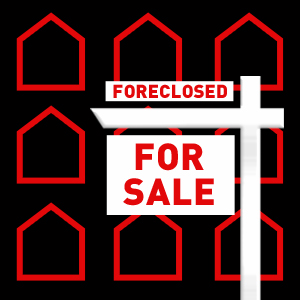ACLU Calls On Florida Judges To Ensure State Foreclosure Court Proceedings Are Open To Public

Transparency Essential To Upholding Due Process Protections In Foreclosure Cases
FOR IMMEDIATE RELEASE
CONTACT: (212) 549-2666; media@aclu.org
TALLAHASSEE, FL – The American Civil Liberties Union, the ACLU of Florida and a coalition of journalistic and First Amendment organizations today delivered letters to two top judicial officials in Florida urging them to ensure that foreclosure court proceedings in the state are open to the public.
The letters, sent to Chief Justice Charles P. Canady of the Florida Supreme Court and Chief Judge Donald R. Moran of Florida's Fourth Judicial Circuit, highlight a number of reports from around that state that, taken together, point to a troubling pattern of foreclosure courts operating behind closed doors rather than openly as mandated by Florida law.
"Our organizations have received numerous reports that extraordinary barriers to access are preventing members of the general public, as well as representatives of the news media, from observing foreclosure proceedings in judicial circuits around the state," the letter to Chief Justice Canady reads. "We believe these barriers undercut the transparency of the judicial process; they also violate the strong presumption of open access to judicial proceedings under Florida law."
The letter, co-signed by the Florida Association of Broadcasters, the Florida Society of News Editors, the Florida Press Association, the Florida Times-Union newspaper and the First Amendment Foundation, urges Chief Justice Canady and Chief Judge Moran to promptly ensure access by the public to foreclosure court proceedings in order to avoid the need to initiate litigation.
Recent media reports in Florida and around the country have revealed rampant error and fraud in the foreclosure process. Concerned that Florida homeowners are having their constitutional rights violated during foreclosure proceedings and being unlawfully removed from their homes, the ACLU last month filed public records requests with the Office of the State Court Administrator and the chief judges of Florida's 20 circuit courts. The ACLU is seeking documents related to special court systems created to dispose of foreclosure cases and the rules governing those courts.
The filing of the records request was motivated, in part, by concerns over how the foreclosure crisis gripping the nation is disproportionately impacting communities of color. According to a recent report by the Center for Responsible Lending, the percentage of African-Americans and Latinos who have lost their homes to foreclosures is nearly twice that of whites.
Among the incidents cited in the letters delivered today to the Florida judges is one in which a Jacksonville legal aid attorney was castigated by a judge for attending a foreclosure proceeding with a reporter from Rolling Stone magazine. While "attorneys are welcome in Chambers at their leisure," the judge wrote to the attorney in an e-mail, members of the media are "permitted" entry only upon "proper request to the security officer." The judge further stated that the attorney's "apparent authorization that the reporter could pursue a property owner immediately out of Chambers into the hallway for an interview" is grounds "for possible contempt charges in the future."
Other incidents cited in the letter to Chief Justice Canady involve court observers in Hillsborough and Orange counties calling courts to ask about the rules governing foreclosure proceedings and being told they are closed to the public, and a homeowner defending herself in a foreclosure case in Duval County being told by a member of a court's security she could not access foreclosure proceedings because only attorneys are allowed.
"The protection of public access to judicial proceedings serves fundamental constitutional values," the letters delivered today say. Quoting a 2005 Florida appellate court decision, the letters state that, in particular, "the 'value of openness lies in the fact that people not actually attending trials can have confidence that standards of fairness are being observed; the sure knowledge that anyone is free to attend gives assurances that established procedures are being followed and that deviations will become known.'"
Copies of the letters are available online at: www.aclu.org/racial-justice/letters-regarding-open-access-florida-state-foreclosure-court-proceedings
